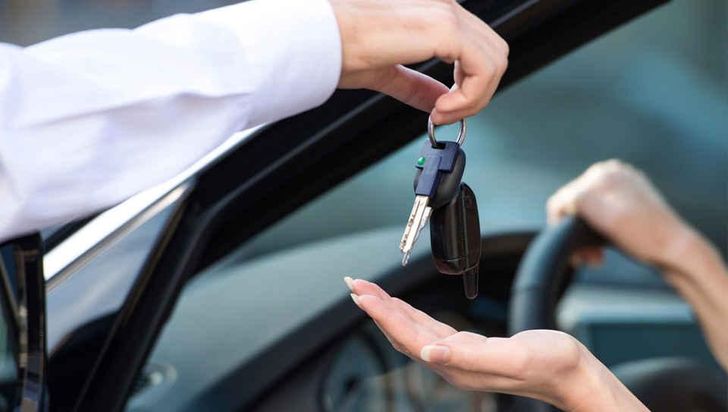It always means a lot to have a car, irrespective of whether the vehicle is purchased or leased. Owning a car is, sometimes, all that matters. In many ways, buying a new car is considered a good decision. However, whether it is a wise decision or not is a matter which is not just debatable but also one with many facets to it. From a financial expert's perspective, deciding to put in such a large amount upfront (on a depreciating asset) is not a good investment practice. When translated into financial language, it means losing money when the car leaves the showroom when purchased. Again, it is a perspective.
What comes next is the best alternative not to lose money. You should lease a car. While leasing is the best way to go around a depreciation loss, it should also be known that not all buyers of cars actually focus on the depreciation element. For these buyers, it is just the thrill of owning a car. That aside, leasing is the best way to have a vehicle for yourself. It allows you to possess a new car without actually owning it. No large upfront payment, no hefty loans and submitting any collaterals. All you need to do while leasing a vehicle is to mutually agree with the leasing firm on a fixed monthly amount for the period you decide to keep the car. The monthly instalments for leasing a vehicle typically include and cover the cost of the car, its insurance, maintenance, service, road tax or any other vehicular taxes. The leasing company bears all these.
Areas to focus on when leasing a car :
Your driving pattern and expected annual travel
Leasing companies usually stipulate an upper limit and cap on the number of miles or kilometres travelled in a calendar year. This is the primary criterion on which financial calculations of the car, its life expectancy, service requirements, repairs and replacements are all computed. These then collectively constitute the basis of the monthly fixed instalment. Leasing companies also levy penalties and extra charges if the mutually agreed number of miles or kilometres travelled is exceeded in one calendar year.
Read the Leasing Contract
As a consumer, it is your right to know the basis of every single penny or cent being charged. Best for you to ask questions irrespective of whether you feel the question is trivial or irrelevant. Getting the correct explanation and understanding the charges will help you in the long run. Read through the fine print and look for the add-ons. Make sure the leasing company inserts none without your consent.
Check and Verify Mandatory Regulatory Compliances
Simple checkpoints like validating the number plate and VIN number with the details mentioned in the lease contract. Checking the validity and coverage of the insurance, validating the registration period and taxes paid certificate and ensuring the maintenance contract is up-to-date and in line with the lease contract.
References and Reviews
Today's internet world can generate an immense amount of information which could help you check, verify and select a car. Many people post reviews and their individual experiences through which you can get valuable insights into the actual working capabilities of the leasing agency.
Service Charges and Fees
As a car lease owner, you must know every charge and fee upfront. You must ensure that services, repairs and handling charges are most cost-optimised without reducing the SOPs or service levels. It is always better to decide on the total service required, the periodicity of the service, and charges per service and only then agree to the fixed monthly lease instalment.
End-of-Term Residual Value
Residual value is the financial calculation which is an estimated value of the car at the end of the lease period. While there are different methods of calculating a vehicle's residual value, it is typically calculated as a percentage of the MRP or Manufacturer Retail Price when the car was out for sale originally. Calculation of the residual value of a vehicle also takes into account the depreciation and other expended attributes like normal wear and tear, possible resale value and the number of miles or kilometres likely to be travelled or already travelled.
Considering all aspects, leasing a car ensures that you need not have to pay any large upfront amount or get into any long-term commitment. Simply decide how, when and for how long you want to stay in the lease agreement. Above all, there is no need to stress about loans or EMIs or any collaterals.



 Photo by
Photo by  Photo by
Photo by 

 Photo by
Photo by  person holding black smartphone on white textile
Photo by
person holding black smartphone on white textile
Photo by  StableDiffusion
StableDiffusion
 Photo by
Photo by  Photo by
Photo by 
 roommate as a therapist
StableDiffusion
roommate as a therapist
StableDiffusion
 woman in white shirt eating pizza
Photo by
woman in white shirt eating pizza
Photo by  person holding remote pointing at TV
Photo by
person holding remote pointing at TV
Photo by  person holding assorted clothes in wooden hanger
Photo by
person holding assorted clothes in wooden hanger
Photo by  a couple of
a couple of  friends cleaning apartment
StableDiffusion
friends cleaning apartment
StableDiffusion
 man driving car during golden hour
Photo by
man driving car during golden hour
Photo by  bacon strips and melted cheese topped fries on oval white and blue platter with gray stainless steel forks
Photo by
bacon strips and melted cheese topped fries on oval white and blue platter with gray stainless steel forks
Photo by  selective focus photography of eyeshadow palette
Photo by
selective focus photography of eyeshadow palette
Photo by  brown wooden framed white padded chair in between green indoor leaf plants inside bedroom
Photo by
brown wooden framed white padded chair in between green indoor leaf plants inside bedroom
Photo by  women forming
women forming  taking
taking  man in red polo shirt pouring wine on clear wine glass
Photo by
man in red polo shirt pouring wine on clear wine glass
Photo by  woman in black jacket standing on road during daytime
Photo by
woman in black jacket standing on road during daytime
Photo by 
 StableDiffusion
StableDiffusion
 StableDiffusion
StableDiffusion
 student thinking i shouldnt have procrastinated all semester
StableDiffusion
student thinking i shouldnt have procrastinated all semester
StableDiffusion
 Photo by
Photo by  Photo by
Photo by  Photo by
Photo by  StableDiffusion
StableDiffusion
 StableDiffusion
StableDiffusion
 Photo by
Photo by  Photo by
Photo by 



